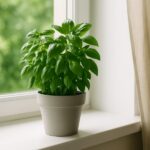In feng shui, the arrangement of indoor plants is of great importance. A popular saying goes, “A house with five types of flowers will have its children supported by the East wind.” However, these “five types of flowers” do not refer to five specific species but rather five groups of plants that bring auspicious meanings or have air-purifying and health-enhancing properties.
When placed in the right locations, these plants not only improve the feng shui but also create a conducive environment for children’s learning and development. So, what are these five groups of plants, and where should they be placed? Let’s explore further.
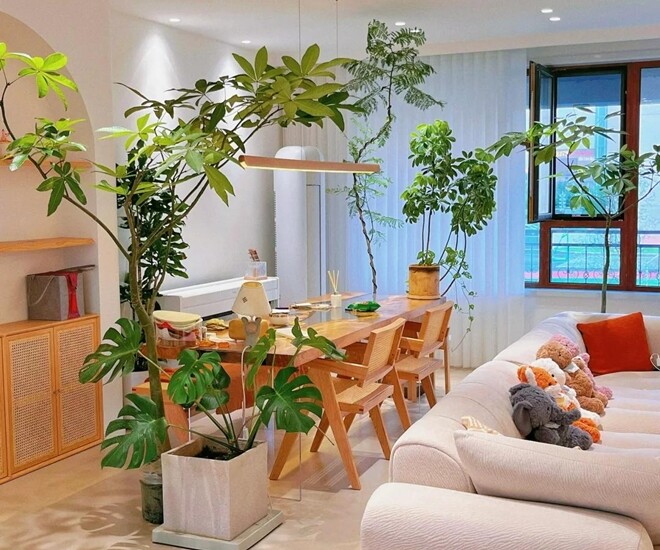
1. Air-purifying plants
Numerous plants can help purify the indoor air. Depending on their characteristics and sizes, you can choose a few suitable ones to create a wholesome and cozy living environment, especially for children.
A clean and refreshing living space promotes a positive mindset and encourages children to develop optimistic, cheerful, and proactive qualities—all of which form a solid foundation for their growth.
Some plants that can be placed in the living room or study to improve air quality include:
– Ficus Benjamina (Weeping Fig): Known as a “dust-absorbing expert,” this plant has large, thick leaves that stay green year-round. It effectively traps dust and improves air quality. The flowers symbolize durability, honesty, and good fortune. It is typically placed in the living room, hallway, study, or bedroom (smaller varieties).

– Money Tree (Pachira aquatica): With its elegant shape and lush green foliage, the Money Tree is a symbol of wealth and prosperity. It requires minimal sunlight and is easy to care for. You can place a larger pot in the living room or smaller ones in the bedroom or study. Recently, the Money Tree’s natural form has gained popularity for its modern and sophisticated look.
Additionally, other plants like the Snake Plant (Sansevieria trifasciata), Split-leaf Philodendron (Monstera deliciosa), Peace Lily (Spathiphyllum), and Chinese Evergreen (Aglaonema) are also excellent air purifiers and carry auspicious meanings. They are well-suited for the living room.
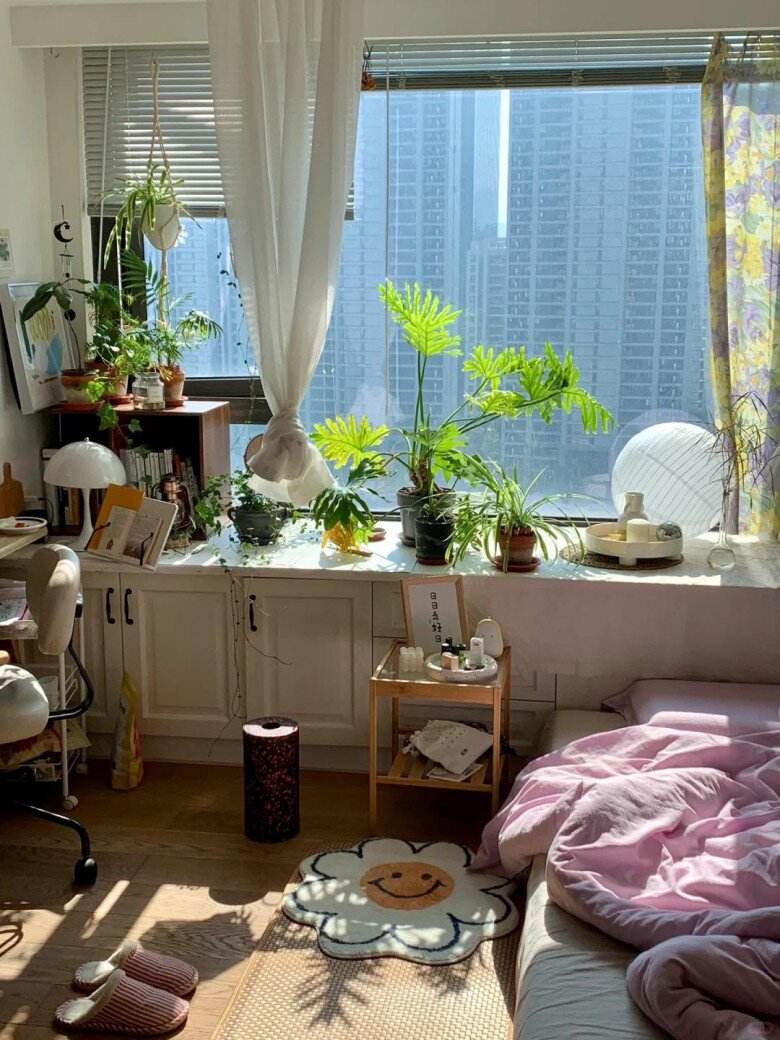
2. Plants for better sleep
In addition to air-purifying plants, you can also choose species that promote better sleep and place them in the bedroom for enhanced effects.
– Lavender (Lavandula): The elegant purple-blue flowers and gentle fragrance of Lavender help relax the mind, reduce stress, and improve sleep quality. Placing Lavender in the bedroom not only beautifies the space but also helps children sleep better and improves their mental clarity for more effective learning.
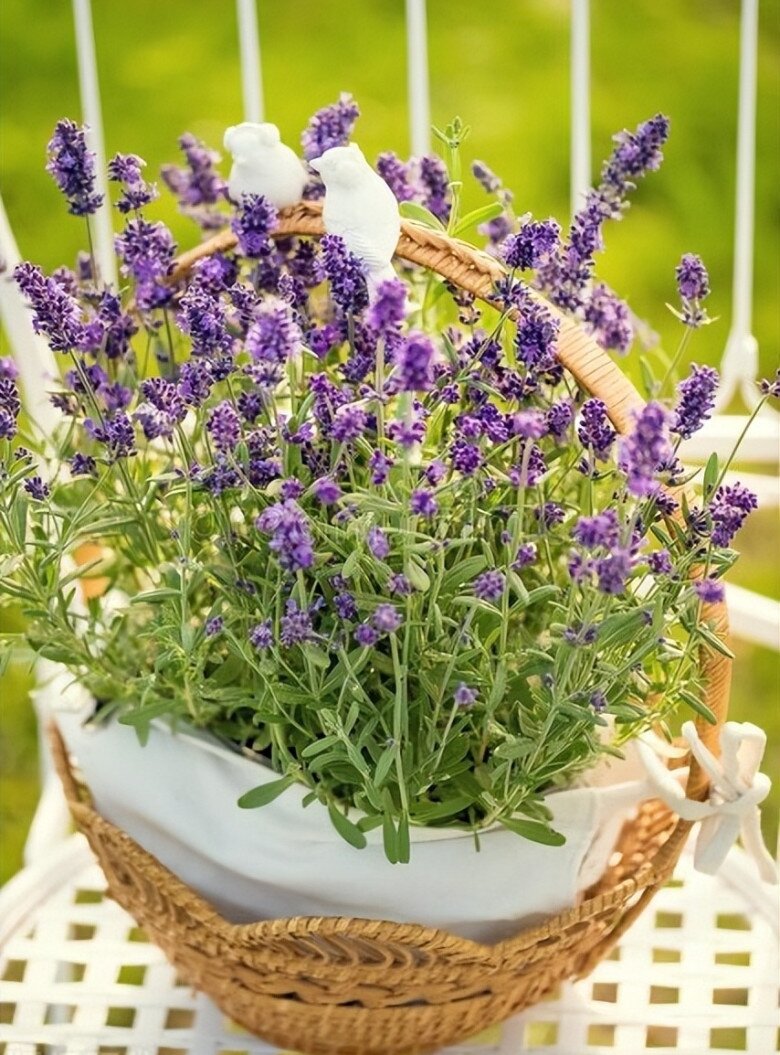
– Kalanchoe blossfeldiana (Flaming Katy): With its vibrant colors and long blooming period from autumn to spring, this plant produces oxygen day and night, ensuring a fresh and healthy bedroom atmosphere. Its compact size and positive symbolism make it ideal for the bedroom.
– Aloe Vera: Easy to grow and requiring minimal care, Aloe Vera releases oxygen and absorbs toxins like formaldehyde at night, keeping the bedroom air clean and fresh. Just place it near a source of light and water it occasionally.
– Lemon Blossom: With its year-round blooming and delicate fragrance, the Lemon Blossom soothes the mind and induces a peaceful sleep. Its natural and pleasant scent makes it a perfect choice for the bedroom.
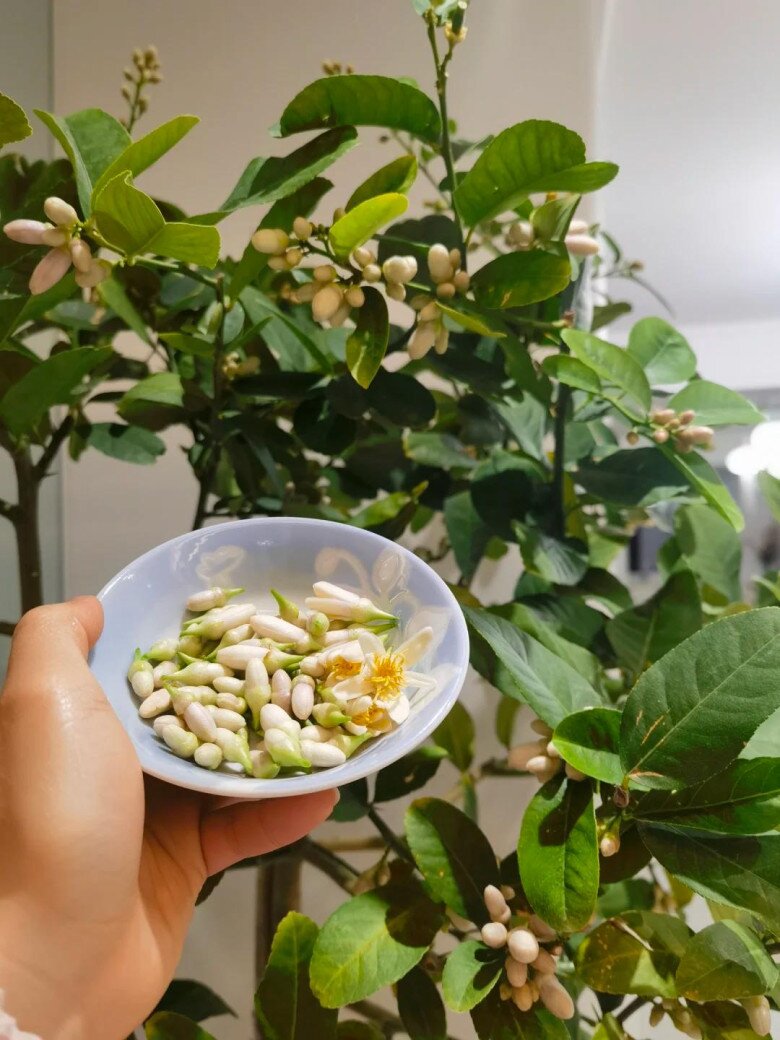
3. Eye-friendly plants
Plants that benefit the eyes typically have large, deep green leaves. When children feel tired from studying, glancing at these lush greens can help relax their minds and reduce eye strain. Over time, this practice can improve their eyesight and prevent eye dryness.
Some evergreen plants that are ideal for this purpose include the Chinese Evergreen (Aglaonema), Moth Orchid (Phalaenopsis), Dwarf Banana (Musa acuminata), Large-leaf Rhododendron (Rhododendron), and Chain Fern (Loropetalum). Place them near your child’s study area or by the window for easy viewing, benefiting their eyes.
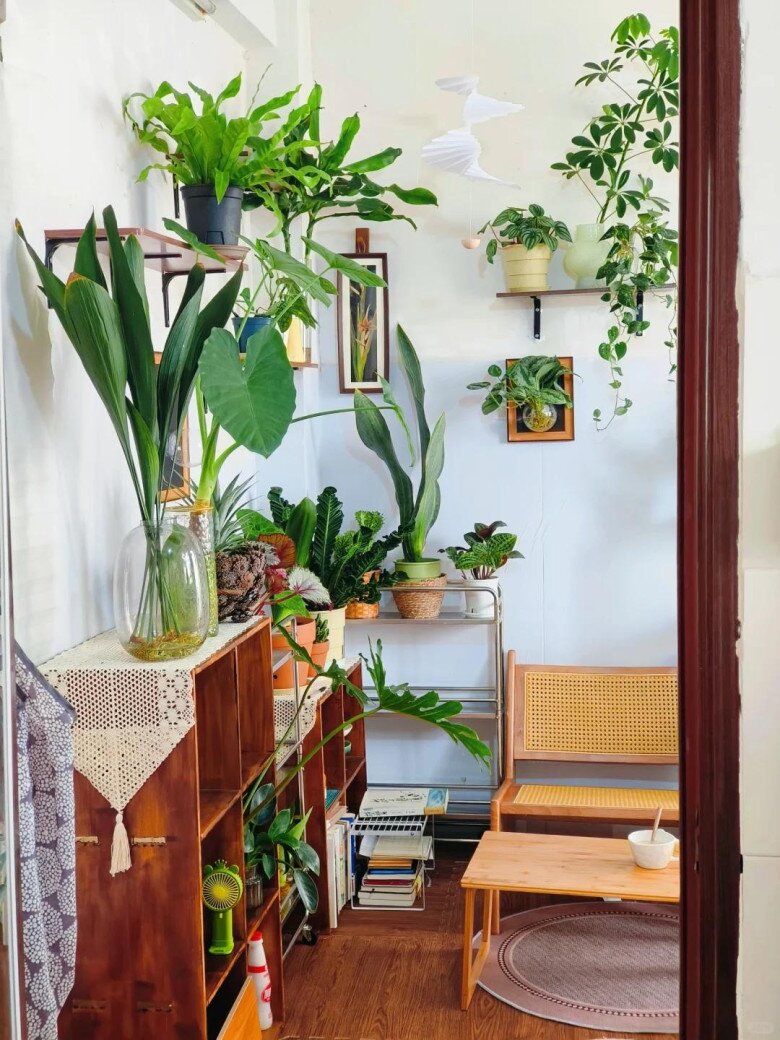
4. Plants symbolizing advancement and development
Plants with auspicious meanings not only enhance feng shui but also create a positive atmosphere, motivating children in their studies and work. Including a few pots of these plants in your home is an excellent choice.
– Willow-leaf Fern (Polypodiopsida): Often found in reading rooms, this plant has a slender shape and lush green leaves, creating a serene and scholarly atmosphere. It thrives in bright, airy spaces and requires gentle care to maintain its beauty.
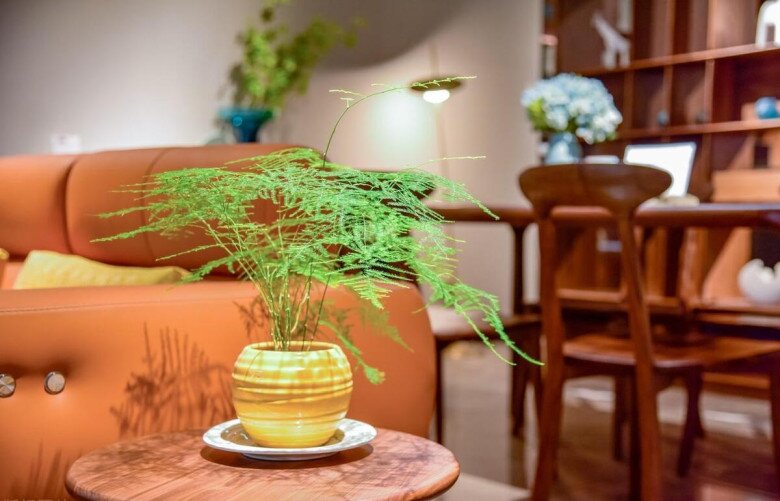
– Lucky Bamboo (Dracaena sanderiana): Commonly grown in water, Lucky Bamboo is easy to care for and remains lush and green year-round, symbolizing good fortune. You can place it on a study desk, windowsill, or shelf in the bedroom. It is recommended to grow an odd number of stalks, such as nine, representing “complete success.”
– Orchid: Orchids symbolize nobility and refinement. Their graceful flowers and delicate fragrance, even when not in bloom, exude elegance. Placing a few orchid pots in the room cultivates aesthetics and calmness in children.
– Creeping Fig (Ficus pumila): Well-suited for indoor spaces, especially reading rooms, the Creeping Fig thrives with minimal light and helps reduce eye strain from studying while bringing good fortune. It is a resilient and easy-to-care-for plant, making it an excellent choice for a study environment.
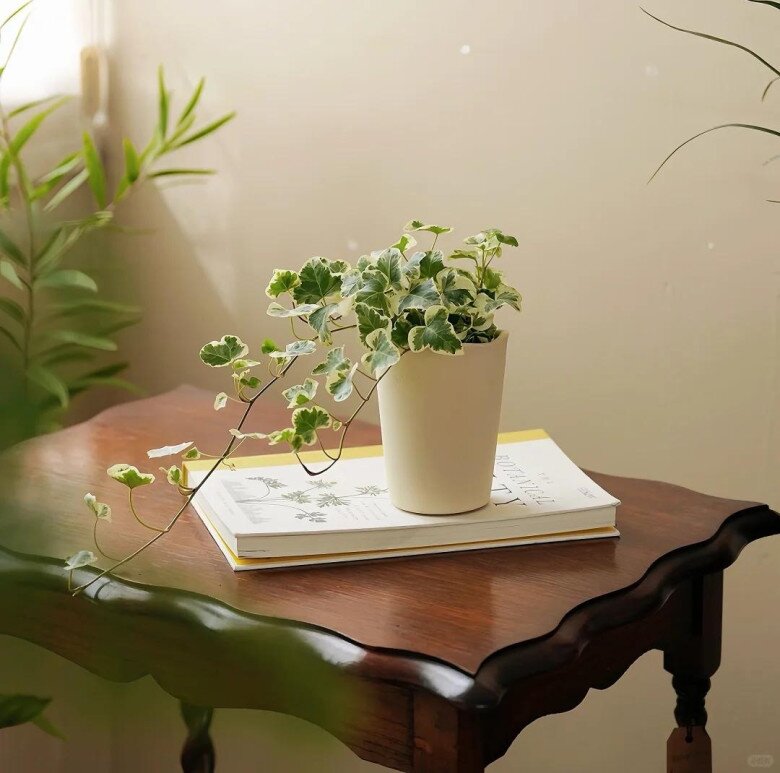
5. Plants symbolizing good luck and fortune
In addition to plants that benefit health and feng shui, you can also decorate your home with beautiful flowering plants that symbolize good luck, attracting positive energy and creating a bright and cheerful space.
– Century Plant (Agave americana): Belonging to the agave family, this plant bears vibrant flowers at the tip of its stem for 8–9 months, earning the name “century flower.” Apart from beautifying the space, it also purifies the air and brings good luck to the family. It is easy to care for, requiring only sunlight and periodic watering.
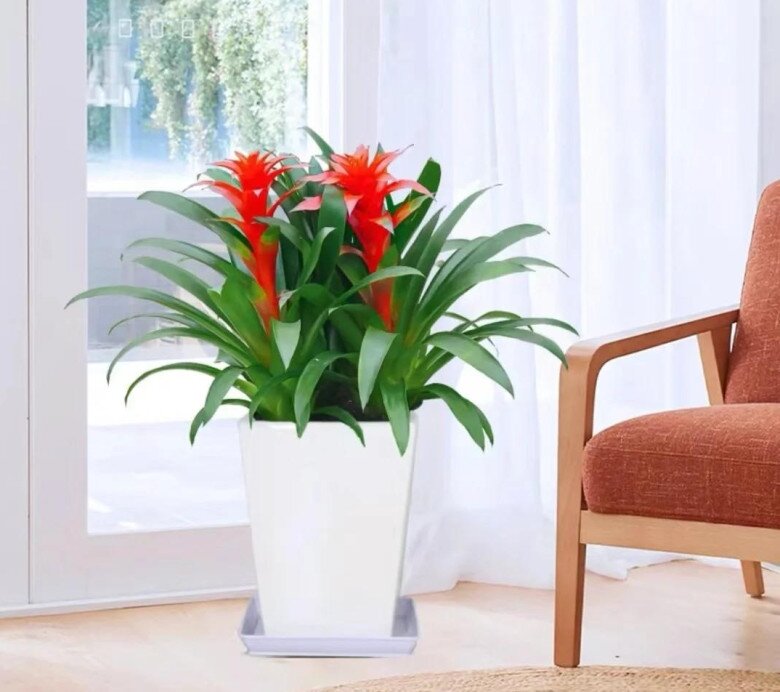
– Clivia miniata (Kaffir Lily): A high-end plant with a sturdy shape and elegant flowers, symbolizing wealth, stability, and refined character. Its leaves grow straight and glossy, resembling a sword and representing strong willpower. Displaying this plant in your home adds sophistication and helps purify the air.
4 ‘Air Purifiers’ That Are Easy to Grow at Home: The Secret to a Fresh Living Space
Many people grow plants purely for aesthetic purposes, but what some may not realize is that common household plants such as basil, lemongrass, and mint possess a hidden superpower. These humble herbs are not just a feast for the eyes, but they also possess the extraordinary ability to purify the air, ward off pests, and create a soothing living environment, offering a natural therapeutic experience.
The Green Thumb’s Guide to Indoor Bliss: 6 Houseplants to Bring Peace, Prosperity, and Positive Vibes
In the realm of feng shui, certain houseplants are believed to bring more than just aesthetic appeal and a touch of nature to your living space. These special plants are thought to possess the power to attract wealth, bestow peace and ward off misfortune, creating an environment that thrives with positive energy and prosperity.


























